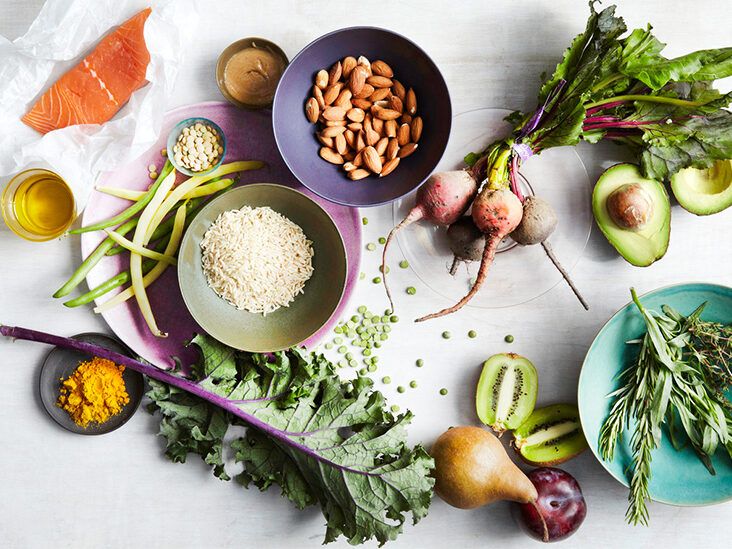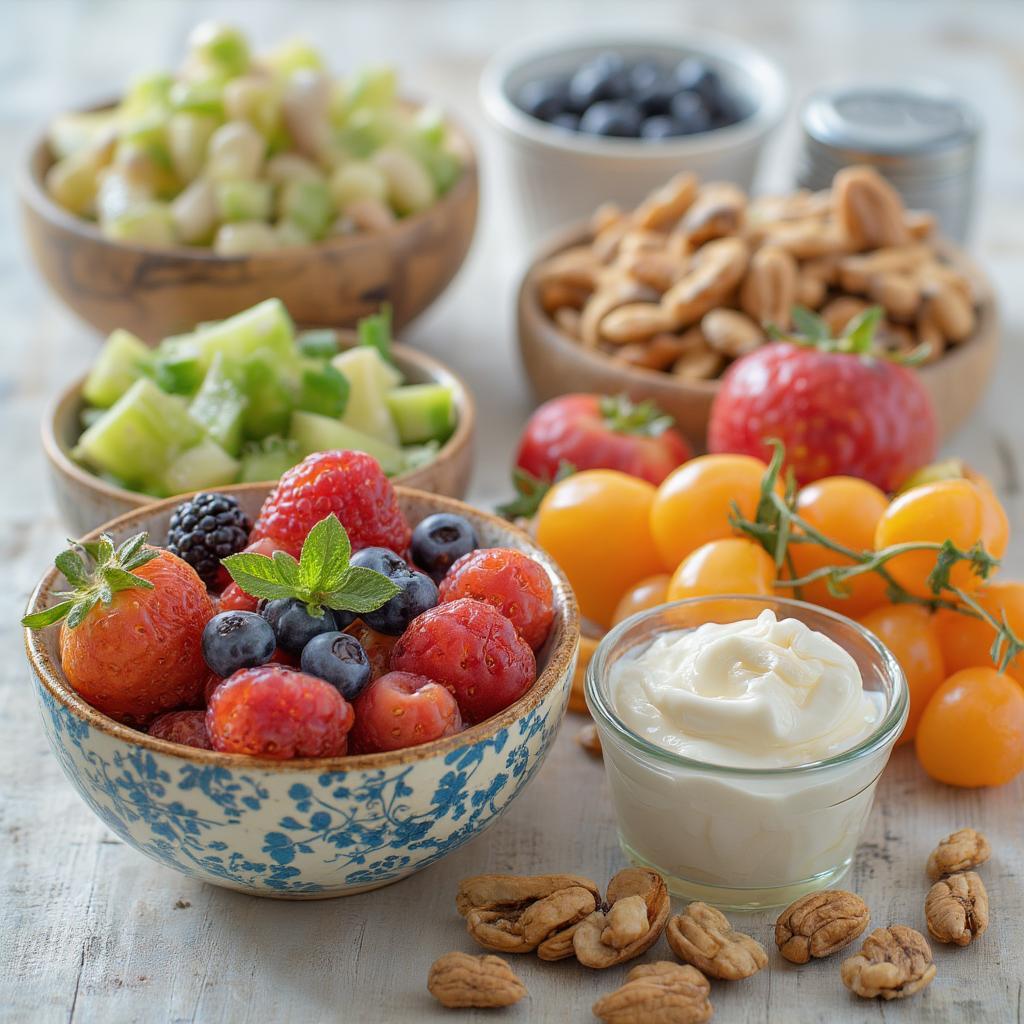Top 10 Vitamin K Rich Foods Benefits, Deficiency, and More

Vitamin K Rich Foods an essential nutrient that plays a vital role in blood clotting and bone health. It also has many other important functions in the body, such as regulating calcium levels and supporting heart health. Despite its importance, many people are not aware of the benefits of vitamin K or how to incorporate it into their diets. In this blog post, we will provide you with all the information you need to know about vitamin K, including its sources, benefits, and potential risks.
What is Vitamin K?
Vitamin K is a fat-soluble vitamin that is naturally present in many foods. There are two main types of vitamin K: vitamin K1 (phylloquinone) and vitamin K2 (menaquinone). Vitamin K1 is found primarily in plant-based foods, while vitamin K2 is most commonly found in animal-based foods. Our body can also produce small amounts of vitamin K2 from gut bacteria.
Why is Vitamin K important?
Vitamin K has several crucial roles in our body, the most well-known being its involvement in blood clotting. Blood clotting is a necessary process that helps our body stop bleeding when we get a wound. Vitamin K is essential for the production of various proteins involved in blood clotting, including prothrombin, which helps form blood clots. Without adequate levels of vitamin K, our body may have difficulty forming blood clots, which can lead to excessive bleeding.
Apart from its role in blood clotting, vitamin K is also important for bone health. It helps our body maintain strong bones by regulating the activity of osteoblasts, cells responsible for bone formation. Vitamin K is also believed to play a role in preventing age-related bone loss and reducing the risk of osteoporosis.
Additionally, vitamin K plays a part in maintaining cardiovascular health. Some studies have shown that vitamin K may help prevent the hardening of arteries by inhibiting calcium buildup in the arterial walls. This can reduce the risk of heart disease and stroke.
Top 10 Vitamin K Rich Foods
Getting enough vitamin K through our diet is crucial for maintaining overall health. Here are the top 10 vitamin K rich foods that you can incorporate into your meals:
1. Kale
Kale is a leafy green vegetable that is packed with vitamins and minerals, including vitamin K. Just one cup of cooked kale contains over 500% of the recommended daily intake (RDI) of vitamin K. It also provides other essential nutrients like vitamin C, vitamin A, and calcium.
2. Spinach
Spinach is another leafy green vegetable that is an excellent source of vitamins and minerals. One cup of cooked spinach contains approximately 600% of the RDI of vitamin K. It is also rich in other beneficial compounds like antioxidants and iron.
3. Broccoli
Broccoli is a cruciferous vegetable that is known for its impressive nutrient profile. One cup of cooked broccoli provides over 200% of the RDI of vitamin K, along with other essential vitamins and minerals like vitamin C, folate, and potassium.
4. Brussels Sprouts
Brussels sprouts are another cruciferous vegetable that is high in vitamin K. One cup of cooked Brussels sprouts contains around 200% of the RDI of vitamin K. They are also a good source of fiber and antioxidants.
5. Cabbage
Cabbage is a versatile vegetable that is commonly used in various cuisines. It is also a rich source of vitamin K, providing over 80% of the RDI per cup when cooked. Cabbage is also low in calories and packed with other beneficial nutrients.
6. Natto
Natto is a traditional Japanese food made from fermented soybeans. It is one of the best sources of vitamin K2, providing over 200% of the RDI in just one ounce. Natto is also rich in probiotics, which can benefit gut health.
7. Beef Liver
Beef liver is an excellent source of many essential nutrients, including vitamin K. Just three ounces of cooked beef liver contains over 1,000% of the RDI of vitamin K. It is also rich in iron, vitamin A, and several B vitamins.
8. Chicken
Chicken is a widely consumed meat that is also a good source of vitamin K. One cup of cooked chicken provides around 20% of the RDI of vitamin K. It is also a lean protein source and contains other essential nutrients like selenium and phosphorus.
9. Egg Yolks
Egg yolks are not only delicious but also a great source of vitamin K. Just two egg yolks provide around 60% of the RDI of vitamin K. They are also packed with other nutrients like choline, lutein, and zeaxanthin.
10. Prunes
Prunes, or dried plums, are not only a tasty snack but also a good source of vitamin K. Half a cup of prunes provides approximately 20% of the RDI of vitamin K. They are also a rich source of antioxidants and fiber.
Benefits of Vitamin K Rich Foods
Including vitamin K-rich foods in your diet has several benefits, some of which include:
- Improved bone health: Vitamin K plays a vital role in maintaining strong bones and preventing age-related bone loss.
- Better heart health: Some studies suggest that vitamin K may help prevent heart disease by reducing calcium buildup in the arteries.
- Enhanced blood clotting: Adequate levels of vitamin K are necessary for proper blood clotting, which is essential for wound healing.
- Reduced risk of certain cancers: Some studies have shown a possible link between vitamin K intake and a reduced risk of certain types of cancer, such as prostate and liver cancer.
How to Incorporate Vitamin K into Your Diet
Now that you know the top sources of vitamin K, you may wonder how to incorporate them into your diet. Here are a few ideas:
- Add leafy greens like kale, spinach, or cabbage to your salads or stir-fries.
- Make a side dish of roasted Brussels sprouts or broccoli.
- Have a serving of natto with your sushi or add it to your soups or stews.
- Enjoy a serving of beef liver or chicken for your main protein source.
- Snack on prunes or include them in your oatmeal or smoothies.
- Make a frittata or omelet with egg yolks.
Remember to vary your food choices to ensure you get a diverse range of nutrients in your diet.
Vitamin K Deficiency: Symptoms and Risks
Vitamin K deficiency is rare in healthy individuals, as it is found in many foods and our body can also produce small amounts. However, certain factors can increase the risk of deficiency, such as malabsorption disorders, long-term antibiotic use, and liver diseases.
Symptoms of vitamin K deficiency may include:
- Easy bruising
- Excessive bleeding from wounds or cuts
- Bleeding gums
- Heavy menstrual bleeding
- Blood in urine or stool
- Nosebleeds
If you experience any of these symptoms, it is essential to consult a healthcare professional for proper diagnosis and treatment.
Vitamin K Supplements vs. Natural Sources
Supplements are often marketed as a quick fix for nutrient deficiencies. However, when it comes to vitamin K, getting it from natural sources is generally preferred over supplements. This is because whole foods contain other essential nutrients and beneficial compounds that work together to improve our overall health. Additionally, supplements may interact with certain medications or have potential side effects.
However, if you are at risk of vitamin K deficiency or have a condition that prevents you from getting enough vitamin K from your diet, your doctor may recommend a supplement. It is crucial to discuss the use of supplements with a healthcare professional before incorporating them into your routine.
Cooking Tips for Preserving Vitamin K in Foods
Vitamin K is a heat-sensitive nutrient, meaning it can be lost during cooking. To preserve vitamin K in foods, try these cooking tips:
- Steam or lightly sauté vegetables instead of boiling them.
- Cook vegetables until they are tender but still bright in color.
- Avoid overcooking meats.
- Store foods properly to prevent nutrient loss.
- Eat raw vegetables like kale or spinach in salads or smoothies.
Vitamin K and Blood Clotting: What You Need to Know
As mentioned earlier, vitamin K plays a crucial role in blood clotting. This raises concerns about its possible interactions with blood-thinning medications like warfarin. These medications work by blocking the activity of vitamin K, which can lead to excessive bleeding. Therefore, individuals taking these medications need to monitor their vitamin K intake and keep it consistent to avoid any potential risks.
If you are on blood-thinning medication, it is essential to discuss your vitamin K intake with your doctor to ensure that you are getting enough without interfering with the medication’s effectiveness.
Potential Interactions with Vitamin K and Medications
Apart from blood-thinning medications, there are other medications that may interact with vitamin K. Some of these include antibiotics, cholesterol-lowering drugs (statins), and seizure medications. If you take any of these medications, speak to your healthcare provider about your vitamin K intake.
Conclusion
Incorporating vitamin K rich foods in your diet has many benefits for your overall health. Getting enough vitamin K is not difficult as long as you include a variety of whole foods in your meals. If you are at risk of deficiency or have a condition that affects your vitamin K levels, consult a healthcare professional for personalized recommendations. Remember to always practice moderation and balance in your diet for optimal health and well-being.
Top 10 Vitamin B12 Rich Foods for Vegetarians
Vitamin B12 Rich Foods for Vegetarians Meeting Your Nutritional Needs













